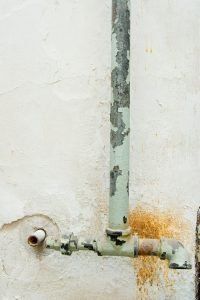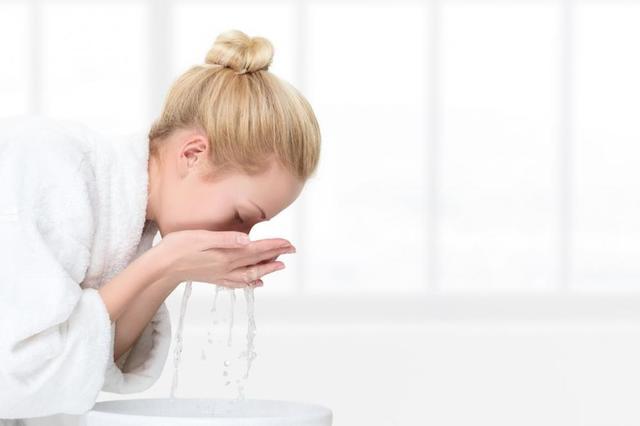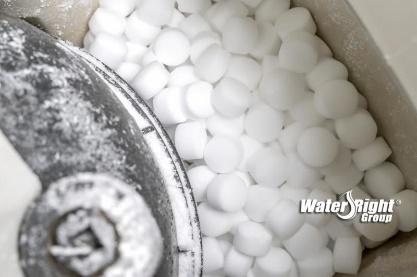Water quality differs throughout the whole country. What are the issues in the Northeastern states and how might they affect you? Find out from this blog article.
- By Jinky E. CANTAL
- •
- 29 Jun, 2018
- •
COMMON REGIONAL WATER PROBLEMS: NORTHEASTERN U.S.
Nov 03, 2017 | Regional Water Problems
The Northeastern United States is full of history, from the Statue of Liberty in New York City to the Liberty Bell in Philadelphia. The Northeast is a unique American region. However, it also comes with some unique problem water.
We spoke with two Water-Right experts based in the Northeast about the kinds of water problems they regularly encounter in the field. Regional Sales Manager Kevin Osborn works in New England and New York state while Water-Right Vice President Greg Gruett covers the rest of the region. Both help train our network of expert water treatment dealers in the following states:
- Connecticut
- Delaware
- Maine
- Maryland
- Massachusetts
- New Hampshire
- New Jersey
- New York
- Pennsylvania
- Rhode Island
- Vermont
One thing Osborn notes about the difference between the Northeast compared to some other areas of the country is the level of hard minerals (calcium and magnesium) typically found in the water.
“Hardness isn’t always a major issue in New England,” Osborn says. ““Even though when we see hard water, the average hardness ranges from 15 to 20 grains per gallon (gpg) and we do have pockets where it gets much harder, the bigger issues is iron and low pH. Although Western New York is one place where the hardness is a lot higher, but in those cases so is the pH.”
The magnesium and calcium in harder water raise its alkalinity. However, in areas where the water isn’t quite as hard, the acidity of low pH water can cause problems such as corroded plumbing, pinhole leaks in pipes, and blue-green stains.

Although the water in the Northeastern U.S. may not be extremely hard, it’s still hard enough to cause issues, and not just for homeowners with private wells. Gruett says our dealers get plenty of calls from people with city water problems, including hardness. Too often people fail to realize that while city water is treated, it is not softened.
Even lower levels of hardness can cause problems over time. That’s especially true for the damage lime scale can cause to water-using appliances. Plus, hard water makes those appliances less effective, too. More homeowners in Northeastern states are noticing this because of changes made to the ingredients in common household cleaners.
“They took all the phosphates out of soaps and detergents for environmental reasons,” Gruett explains. “Those phosphates were softening the water, which protected the appliance and made soap products clean better. Now, people are complaining that their dishwashers and washing machines don’t work anymore.”
That means dirty dishes, dingy laundry, and appliances that break down sooner than normal. All of this could be solved with the installation of the right water softener, which Gruett says is becoming essential in the modern home.
Another common grievance about city water in the Northeast region stems from chlorination during municipal water treatment.
“A big complaint we get from homeowners is that the water smells or tastes like a swimming pool,” Gruett says. “That’s because municipalities are increasing chlorine content due to federal regulations.”

Of course, there are plenty of people in the Northeast getting their water from private wells, too. Iron and manganese contamination tend to be common problems, even more so than hardness. Stains on sinks and toilets or drinking water with a metallic taste are telltale signs. Osborn says there’s a unique media used for effective filtration of iron and manganese in the Northeast.
“Manganese actually tends to cause more issues in my region and Green Sand Plus tends to be our go-to media, because it’s also better for low pH waters,” Osborn says. “It’s a catalytic media that oxidizes the water and converts iron from ferrous to ferric while going after slight odors such as sulfur as well.”
A particularly unique issue to homes along the East Coast is salt water intrusion which increases chlorides in the water causing high total dissolved solids (TDS). Salt water intrusion occurs along the coast when water from the ocean makes its way into groundwater or other fresh water aquifers.
“In upstate New York, there are salt mines, so you have wells with high TDS from chlorides there as well,” Osborn adds.
While most people complain about the look, smell, or taste of water, there has been increased awareness about potentially dangerous contaminants you can’t detect with your senses. For example, Gruett says people continue to express concerns about lead contamination in the aftermath of what happened in Flint, Michigan.
“Every mom and dad wants to know if their water is safe for the kids and free of lead,” Gruett says. “All of these East Coast towns were built before World War I. So, there are old pipes everywhere and they’re not tearing up the infrastructure to replace them.”
Gruett says positive test results are happening more frequently because lead tests are now being taken using a “first draw” method. That means the water doesn’t run before a sample is drawn, and that makes it more likely that lead will have leached from old plumbing. Learn more about lead contamination here on our blog.
In most cases, Water-Right believes water is safe for human consumption and we don’t want to raise unnecessary alarm. However, for homeowners who want more peace of mind about their water, we recommend installing a reverse osmosis (R.O.) drinking water system.
An R.O. system will also remove other potentially harmful contaminants that may be present in the Northeastern U.S.
“In New England, we definitely deal with arsenic and uranium, and there can be issues with radon in the water as well,” Osborn says. He goes on to say that getting your water tested by experts is the best way to know it is safe.
“Honestly, most people only test their water when they have an aesthetic problem. If harmful bacteria like E. coli were purple, then you’d have everybody calling because they could see it. There’s a field test for nearly everything, but testing for some of the more serious contaminants should be done by a state certified lab.”
Water-Right’s network of dealers has access to the state-certified Clean Water Testing laboratory, and our experts can help whenever you have questions about water quality.
“We’re dealing with Mother Nature and she is unpredictable,” Osborn says. “If I could control nature it would be 70 degrees outside all the way until November. Homeowners need to understand that their water quality can change due to the environment as well as because of local construction. Just because you don’t have a problem today doesn’t mean there won’t be a problem tomorrow.”
All Water-Right® dealers are equipped to help you with your needs.
Click the links above to visit the websites of our trusted brands. You can use the ‘Find a Dealer’ tool to locate a professional near you and have an expert come to your home to evaluate your situation.
For those who have serious concerns about water quality or potential contamination, you can have your water tested at our Clean Water Testing center to get the answers and peace of mind you need.
















